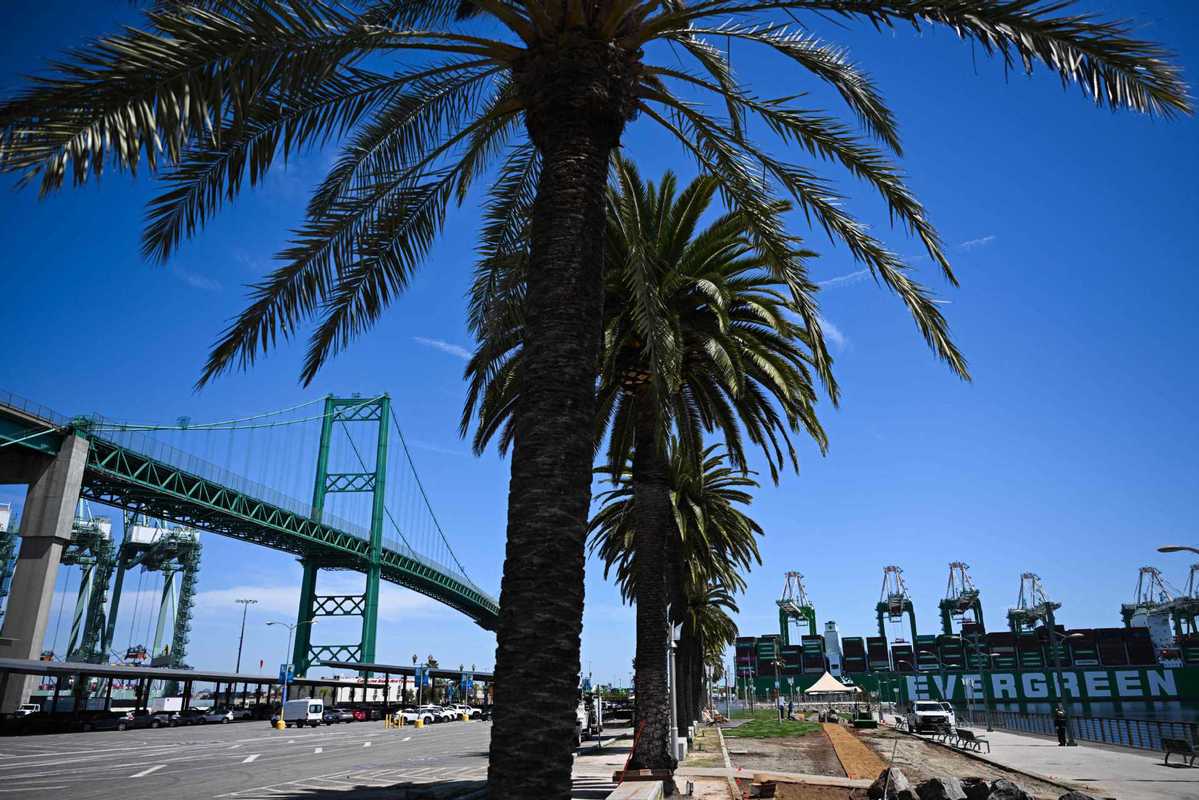Doubts grow as Trump marks 100 days in office
Tariff strategy pushes bilateral ties with China into new phase of tension: Experts


As US President Donald Trump completes the first 100 days of his second term on Tuesday, his administration's aggressive tariff strategy against other countries, especially China, has rapidly escalated uncertainty, pushing the crucial bilateral relationship into a new phase of tension.
Beginning with a 10 percent tariff hike on Feb 1, US duties on Chinese goods have soared dramatically, reaching an unprecedented 145 percent. These actions have predictably drawn firm countermeasures from Beijing and sparked significant global concern over potential economic fallout.
Concurrently, China significantly reduced US oil imports, shifted toward increased Canadian oil purchases, and paused negotiations regarding the sale of TikTok.
Trump's tariff strategy is a clear attempt to hinder China's continued economic development and national rejuvenation from Beijing's perspective. Sean Stein, the president of the US-China Business Council, speaking at a "China Town Hall" event on April 24, shared insights from Chinese contacts: "China hates this idea of having a tariff war, but they also say, 'We're a whole lot better prepared to go through this than the United States. So, US, bring it on.'"
Stein added that Chinese officials conveyed a strong message of defiance, rooted in historical sensitivities toward foreign pressure. This sentiment reflects a deep-seated commitment to national dignity.
The Chinese Ministry of Commerce issued a stern statement on April 10, declaring, "There are no winners in a trade war and there is no way out for protectionism. If the US insists on its own way, China will fight till the end."
Beyond the dominant economic conflict, Trump's administration has pursued some noneconomic measures, primarily focused on military alliances in the Asia-Pacific region. Joint military exercises have been conducted between the US and South Korea and between the US and the Philippines, respectively, framed as enhancing regional security. The administration has also pressured Japan to increase its defense spending, consistent with a strategy to counter China's influence, according to Foreign Policy magazine.
These steps appear aimed at bolstering US alliances to balance China's presence, particularly concerning the South China Sea and Taiwan region. However, significant diplomatic initiatives, cultural exchanges, or public health cooperation have been notably absent, suggesting the administration's focus remains narrowly fixed on economic and military dimensions.
Other nations are feeling the impact and reacting to the tariffs. Canada and Mexico have imposed retaliatory tariffs, while the European Union paused potential new tariffs for 90 days to pursue negotiations, according to US media such as PBS News. Furthermore, The Guardian noted that European countries like Spain and France are actively seeking stronger trade relationships with China, potentially as a hedge against overreliance on the US market.
In the US, businesses face sharply rising costs and growing uncertainty, prompting warnings about potential job losses and severe supply chain disruptions. Stein highlighted the impracticality of the current tariff levels: "There's just no trade to be done when tariffs are above 100 percent."
Public opinion within the US reflects growing apprehension about Trump's economic policies. A CNN poll released on Monday found that 59 percent of people in the US believe the president's policies have negatively impacted the economy, an increase from 51 percent in March.
Recession feared
Furthermore, 69 percent anticipate a recession within the next year, with 32 percent considering it "very likely". Regarding the tariffs specifically, 55 percent view them as poor policy, and 59 percent expect they will harm their personal finances.
Economic experts have cast doubts on the effectiveness and rationale behind the administration's tariff strategy targeting China. Robin Xing, Morgan Stanley's chief China economist, said, "The US thought that by raising tariffs, they could force China to the negotiating table, but China sees this as part of a broader US strategy to contain its growth, not just a trade dispute."
Analysts at the Eurasia Group warned of a growing risk of a "disorderly decoupling" between the two economies in 2025 if tensions continue unabated, The Washington Post reported.
Experts like Stein stress the urgent need for better communication and understanding to avert further damage: "We need to understand each other better." Without a significant de-escalation, the risks of deepening economic decoupling and heightened geopolitical friction loom large, threatening to further disrupt global trade and stability in the months ahead.
yifanxu@chinadailyusa.com






























